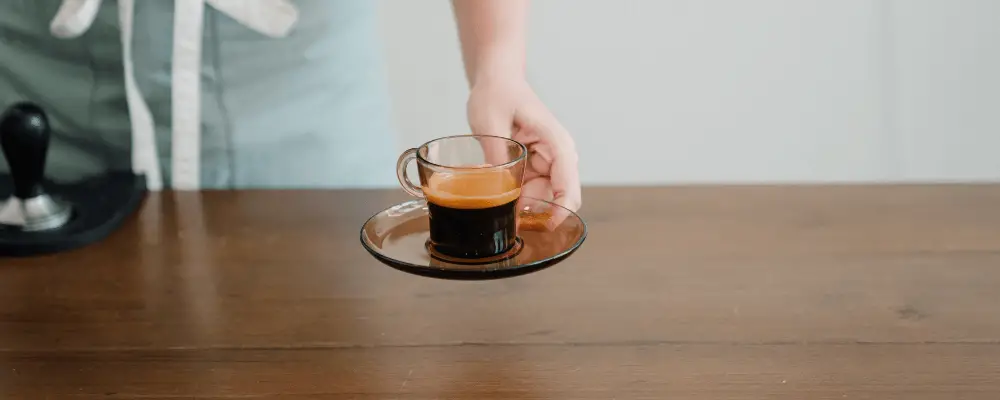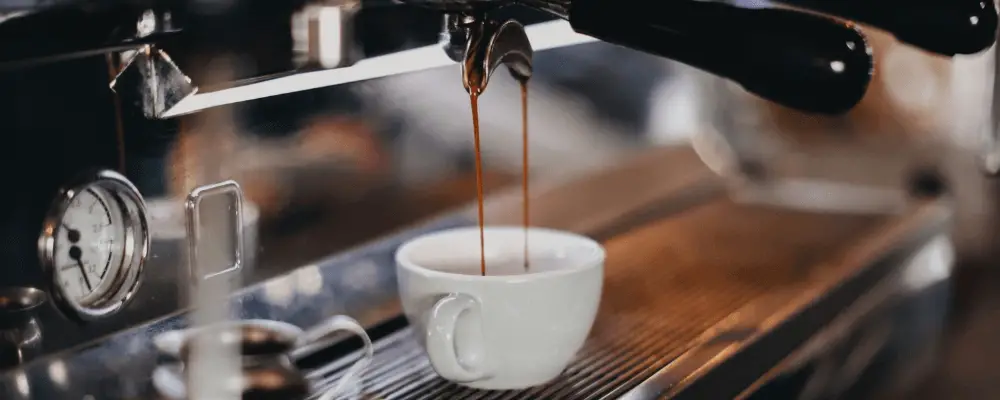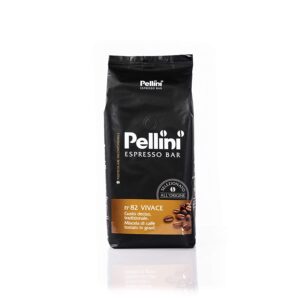
Not only is it aromatic and delicious, but it can also make the difference between an afternoon spend napping and one being productive. With all its benefits, are there any downsides to regularly drinking espresso? Can espresso kill you?
Drinking espresso is very unlikely to kill you. You are way more likely to overdose on caffeine by taking supplements than simply by drinking espresso. Consuming too much espresso can cause dehydration, increased body temperature, headaches, as well as faster breathing, and a faster heart rate.
Caffeine starts being metabolized by the liver as soon as it enters the bloodstream and it has reached its half-life after three to five hours. The half-life is the point at which half of the amount of a substance that has been consumed has been metabolized. This means that, if you consume 80 milligrams of coffee, after five hours at the latest there will only be 40 milligrams left.
Your body is affected by caffeine once there are more than 15 milligrams per liter in the blood, and a concentration of 80 to 100 milligrams per liter can be fatal.
In the average adult human body, there are 5 liters of blood, which means that five or more espressos have to be inside your bloodstream at the very same time to be dangerous.
How Many Espressos a Day Is Safe?
The FDA considers the safe daily dose of caffeine for adults to be up to 400 milligrams per day.
You can drink about four to five espressos per day since the caffeine content of espresso can range between 58 and 185 milligrams. A typical serving of espresso, a double shot, has about 80 milligrams of caffeine on average, this means that four to five shots are a safe limit.
Since caffeine is fully metabolized after ten hours, this will also reset your espresso clock, and therefore you can safely consume four espressos every ten hours or so.

How Many Shots of Espresso Is Too Much?
Coffee drinks that are prepared with varying numbers of espresso shots, like lattes or cappuccinos, can trick you into consuming more caffeine than healthy.
Since they are often come with milk, sugar, or flavorful syrups, drinks like these have the reputation of being rather harmless with regards to their caffeine content.
Contrary to popular belief, though, a latte, a cappuccino, and even a sweet and chocolatey cafe mocha all contain more caffeine than an espresso.
The reason while many people might experience a stronger reaction to espresso is that, since such a tiny portion can be drunken quite quickly, it is consumed faster and thus enters the bloodstream quicker.
While a latte is technically stronger, it might take a while to feel its effects, whereas an espresso is better for an immediate pick-me-up.
How to Tell If You’ve Had Too Much Espresso?
Sometimes, drinking a lot of coffee can have uncomfortable side effects that do not yet equal an overdose.
Aside from the taste, most people drink coffee because they want to feel more awake and alert. This can also change suddenly into feelings of anxiety, restlessness, and irritability.
While this is not fun, it is also not a reason to worry about an overdose.
Typical physical side effects can include dehydration, increased body temperature, headaches, as well as faster breathing, and a faster heart rate. Such negative symptoms will typically stop after a few hours when the caffeine has left the body to a large degree.
The symptoms mentioned above are highly uncomfortable, but not necessarily signs that you are experiencing an overdose.
Indications of an overdose are intense shakiness, feeling sick or throwing up, and a very fast or irregular heartbeat. A caffeine overdose can also lead to mental confusion and panic attacks.
In the rare case that a caffeine overdose leads to death, the cause is most often ventricular fibrillation. This means that, rather than contracting regularly as they should, the lower chambers of the heart vibrate. Then, the heart cannot beat normally anymore, which can lead to cardiac arrest.
How to React to a Caffeine Overdose?
To get rid of mild side effects it is most often enough to rehydrate by drinking water and take a walk to get rid of the excess energy.
When you have one or several symptoms of caffeine overdose, you can get immediate advice by calling poison control. They might advise you to see a doctor or you can decide to do so yourself.
Medical treatment of caffeine overdose includes intravenous fluids and supplements. Sometimes activated charcoal is utilized to prevent caffeine from entering the gut.
Long-Term Health Effects of Drinking too Much Espresso
Yes, consuming high doses of caffeine regularly over a long period of time can lead to several health problems like ulcers, stomach problems, insomnia, and even depression and anxiety.
Drinking coffee regularly builds up a tolerance which means that you have to consume higher doses to achieve the desired effects like feeling awake. In extreme cases, this leads to caffeine addiction and you will feel incapable of going about your day without a base level of caffeine in your blood.
Can Quitting Espresso lead to Caffeine Withdrawal?
When trying to reduce your caffeine intake, you are likely to experience symptoms of withdrawal for the first few days.
These symptoms include headaches, intense tiredness, and lethargy, as well as irritability or a lack of focus. Some people also report so-called brain fog, which is the difficulty to think coherent thoughts and doing common tasks. Physical withdrawal symptoms constipation, muscle cramps, nausea, vomiting, and other flu-like symptoms like a blocked nose.
All in all, working or studying during this stage will therefore be quite difficult. If it is at all possible, you should therefore time your withdrawal so that it does not interfere with any important deadlines or appointments.
I’ve always seen coffee as a way of bringing people together. Everywhere I go people seem to enjoy a fresh cup of coffee and that’s what drives my passion. There’s always a new brew to master, and there’s always a new face to enjoy it with. Hitch a ride with me on a coffee-fueled adventure to find a perfect cup.


